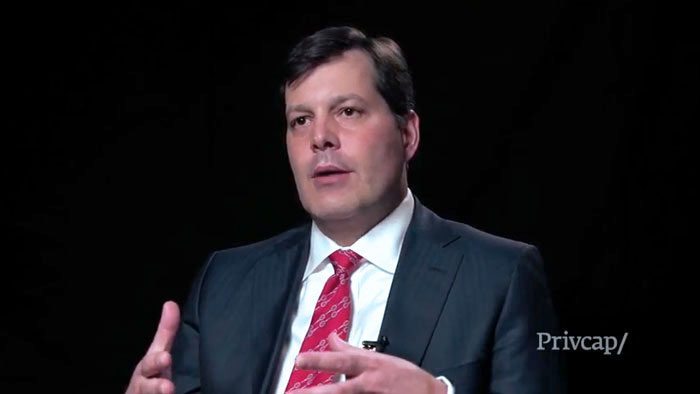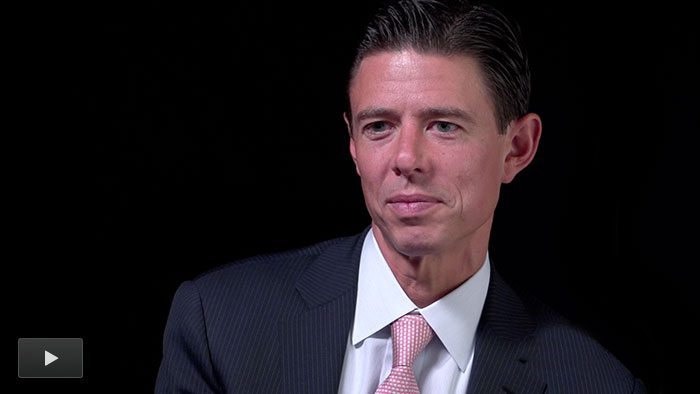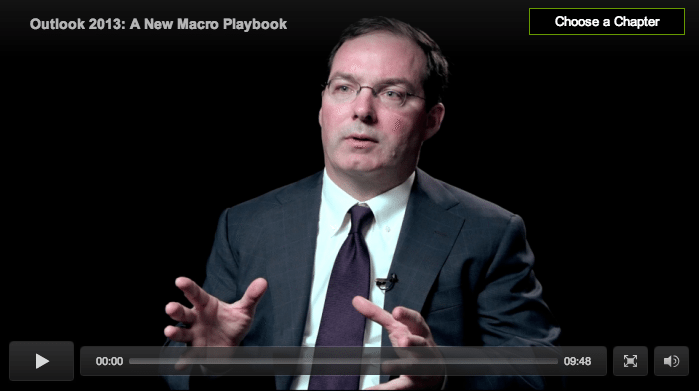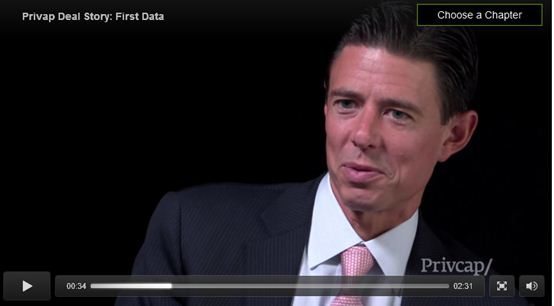KKR Looks to the Future
Scott Nuttall opens up about missed opportunities and the firm’s expansion beyond private equity
Privcap: What prompted KKR to expand beyond private equity?
Nuttall: In the year 2000, we told our teams, don’t chase auctions. Go out and build relationships with management teams in the industries that you cover. And have a set of themes that you think will play out over the subsequent five to 20 years.
 When you go build relationships with management teams, they don’t think of you as just a private equity person. You’re building trust. They like you. They call. And they say, you know, “I need help with this.” And what happened in our business is that we started to get a lot of those phone calls, especially in the ’01 to ’03 period, when companies needed capital. They just didn’t necessarily need it in “private equity” form.
When you go build relationships with management teams, they don’t think of you as just a private equity person. You’re building trust. They like you. They call. And they say, you know, “I need help with this.” And what happened in our business is that we started to get a lot of those phone calls, especially in the ’01 to ’03 period, when companies needed capital. They just didn’t necessarily need it in “private equity” form.
And so by building these relationships, our deal teams started to source very interesting risk/reward opportunities. And a lot of them didn’t fit in a private equity fund. So these calls would come in. They’d say, “Well, can you help us with this?” We’d look at it and say, “It’s a great risk/reward. We’d love to make that investment. But it doesn’t fit.”
And so frustration builds up over time. And we started to track it and literally built a spreadsheet of all the things we could have done if we had the ability to say yes to those situations that we found interesting. And then we tracked who made the investment and how they did. And frankly, it was a very depressing spreadsheet.
So we said, well, that’s kind of dumb. We’re investors. We don’t have to think of ourselves as just doing this one thing. We know companies. We know industries. Let’s find a way to say yes and be relevant.
That’s what led us to say, “Okay, maybe we should think about doing other things.” And so that’s how the evolution started. Frankly, that spreadsheet had a number of investments that were largely structured credit investments. So we started with credit. We wanted to be relevant to those opportunities that were on that spreadsheet. And that’s how we started the expansion of the firm. The same thing happened in energy and infrastructure. It’s just been a continuation of that theme as we’ve evolved the firm.
How do you respond to concerns that, as a public company, KKR risks misalignment between the interests of the firm, its limited partners, and its shareholders?
Nuttall: We became public in a very unconven- tional fashion. We had created a closed-end fund in Europe. We raised $5 billion. That $5 billion was invested in our private equity funds and coinvested in our private equity deals. And we merged KKR into that closed-end fund—didn’t sell any stock. Nobody sold any shares. And then we moved that combined company from the Euronext Amsterdam Exchange to the New York Stock Exchange.
So it’s kind of a roundabout way to become public. But critically, for us, nobody sold any stock. We actually locked people up for longer than, frankly, the vesting on their carry. So we used it as a way to lock people in.
Now we’re our own largest investor. We have $6.5 billion of permanent capital. We hold more of our investments than anyone else. And as we seek to grow the firm, it gives us capital to seed growth. But it also allows us to sit down with investors and say, “We’re actually more aligned with you than ever before, because we gave up some of the management fees and carry—30% of that—to be more like a limited partner.”
KKR recently amassed more than $4 billion to invest in energy and infrastructure. Where do you see opportunity?
Nuttall: The overarching way that we think about the world right now is there’s a lot of supply and demand imbalances. And there’s a significant need for capital in both energy and infrastructure that is not really being met by traditional pools of capital. And we find that imbalance pretty interesting.
Take, for example, oil and gas. Unconventional shale plays have become of great interest to the conventional players. They need about a trillion dollars to actually develop the shale plays. They do not have a trillion dollars. What they have is a large portfolio of conventional oil and gas assets.
We looked at this imbalance, and it was very clear: Companies that had access to the shale plays were trading at a two- or three-point EBITDA multiple premium to those that did not.
And so we look to capitalize on that in a couple of different ways. Firstly, we said, let’s aggregate some shale plays and then sell it to those guys. So we did two deals, East Resources and Hilcorp. We helped them scale. And then we sold East Resources to Shell and Hilcorp to Marathon. And so that was one way to do it—actually create the product they want to buy and scale.
The other way we looked at it was actually giving them cash to go invest in shale. Let’s buy their conventional oil and gas fields and develop those fields better than they are. So we created the business—it’s called KKR Natural Resources—to go buy that. There’s very few participants in that space, so we’ve been able to make some very interesting investments there. So that’s a couple different ways we’ve been playing that theme.
Infrastructure’s yet another one. There’s trillions of dollars of need in the infrastructure space. All you have to do is to fly from the Beijing Airport to JFK and you can see we’ve got some work to do. And so what we found is that there’s not a lot of capital formed around that opportunity either.
And the original way infrastructure funds were getting invested didn’t work out so well. We saw a new way to do it—more operationally focused. So we created an infrastructure business and are quite busy. Because if you think about the pressure on federal, state, and local budgets, they just don’t have the capital to do it. So it’s moving much more to a private model.
Brazil is unquestionably “hot” right now, yet KKR has treaded rather lightly there. Why?
Nuttall: We’ve tried to be very measured in our approach. As we sought to figure out what to do in South America, we’ve been sending teams down and looking at transactions in Brazil and other parts of South America for quite a while now.
But we’ve tried to be very disciplined about it. If you hire a bunch of strangers and put them in a market and say “Go for it,” that tends not to work that well, in our experience. So that’s not something we’re going to do.
What we’ve done thus far is brought on board a senior adviser named Enrique Morales, who was the former head of the Central Bank of Brazil. He’s joined us to help build out that effort. And one of our colleagues who was in New York with us here has also moved down. And we’re creating an office in São Paulo.
We’ve got teams from all around the world going down and looking at transactions. And at some point we’ll hire a local team as well, when we find someone that fits culturally and we think will help us build the business we want.
In which of KKR business lines do you expect to see the most growth?
Nuttall: As you look at KKR today, we have one scale business, which is our private equity business. We have about a 4% market share in a trillion-dollar market. We’re the biggest player in that business.
And we have more opportunities to grow it. But we’re a big player there. Everything else we’ve talked about, whether it’s credit, real estate, energy, infrastructure, hedge funds—all the different businesses that we’ve now entered—we are relatively new and relatively small.
In addition, the end markets are much larger. So if you aggregate the end markets of those new areas, it’s over $5 trillion relative to the $1 trillion in PE. So we see lots of opportunities for growth, frankly, in all of these newer efforts. I think you’re going to see a higher percentage of growth out of the newer efforts, given that they’re still getting to scale.
I think energy and infrastructure will continue to grow. We’ve gone from no assets to $4 billion in two years. I think we can keep scaling that. Our credit business is $16 billion. But given the size of the credit markets, we’ve got lots of room for growth. Real estate is a start-up. Our hedge fund is a start-up. So there are lots of places we see opportunities to grow the firm—in North America but also in Europe and Asia.
And unless you have expertise in the local markets, then it’s quite difficult to do.
Which asset classes or regions do you expect to present the most opportunities?
Nuttall: If I had to pinpoint areas where I see more aggressive growth opportunities, Asia would be one. We’ve now got a footprint in Asia. I think the firm at large is very focused on how we’re going to continue to build out in that market, both in private equity and in other asset classes.
I think our hedge fund effort—we’re seeing lots of capital rotate into those types of vehicles. There’s a real interest in liquid alternatives. And I think anything that’s got liquidity to it is going to be pretty attractive to institutional and retail investors. So I think you’ll see more growth out of liquid alternatives for us and others.
And then, as we look at the world today, people want yield. People are saying, “I don’t want to lose my money. I’d like to book a current return that is attractive and has some upside. But I want to sleep at night, knowing that I’m generating at least an 8% return from something that I’m doing.” And so we’re finding a lot of interest in yielding products globally.
What does the performance of your portfolio companies tell you about where we are in the economic cycle?
Nuttall: Let’s break it down. In the U.S., I’d say we’re doing a bit better than bouncing on the bottom. We can’t seem to put together, as an economy, a sustained period of decent performance. It’s just good month, bad month, good month, bad month. Our companies have actually performed quite well, but it’s because we’ve been very disciplined around the expense side.
The challenge is revenue growth. So you’ve just got to stay operationally disciplined. You’ve got to consolidate and take market share in times like this.
But it’s also a good time to put money to work. We did $26 billion worth of transactions last year just in private equity, and the vast majority was in North America. So when you have a long-term holding period like we do in private equity, this is a good time to plant seeds. At some point, the economy will feel better than it does now—multiples will keep going up. And there will be an attractive opportunity to exit.
Europe is weak. We think the GDP forecasts are too optimistic. But our portfolio is today, happily, largely focused in northern Europe, which has been somewhat less exposed to the ills of the continent. So our overall European portfolio has been performing well—probably better than we would have expected.
Asia is slowing down a little bit. But I think some of the anxiety is a bit overdone. If China grows at 7% instead of 8.5%, there’s going to be all sorts of anxiety about that. But honestly, last I checked, 7% is probably a bit better than what we’re seeing in the U.S. and Europe. And even in places like India that are having their own sets of issues, we’re seeing growth. So, on a relative basis, Asia’s still very attractive.
Scott Nuttall opens up about missed opportunities and the firm’s expansion beyond private equity





